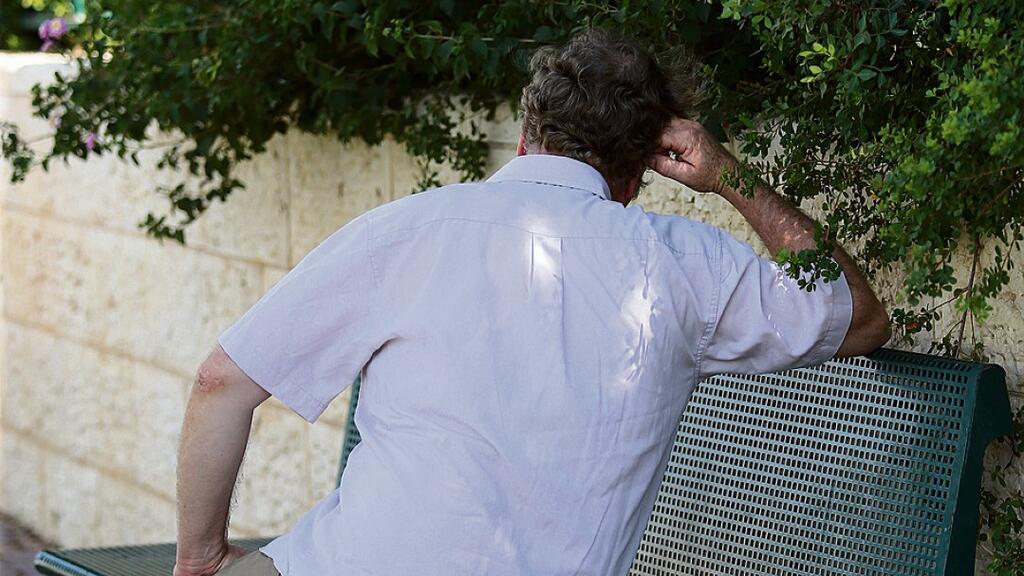Getting your Trinity Audio player ready...
Due to fears of escalation and Iranian retaliation, many Israelis are currently grappling with a complex mental reality. They face anxiety, uncertainty, a lack of control, and difficulty making everyday decisions. These challenges stem from the security uncertainty and the unknowns about if, where, and when the attack might occur.
Tal Levana, a clinical psychologist, and mental health director for the Jerusalem District at Meuhedet Healthcare fund, explained how the current situation and the need to cope with prolonged anxiety affect our mental state and daily functioning. She also provided practical tools for dealing with extended periods of uncertainty.
2 View gallery


Anticipation of Iranian retaliation weighs heavily on Israelis
(Photo: Alex Kolomoisky)
In recent days, many Israelis have been experiencing existential anxiety, feeling as though their lives are "on hold." Levana discussed how this ongoing uncertainty impacts our lives, emphasizing that prolonged waiting and uncertainty naturally lead to some level of stress, anxiety, and worry. "It's normal to experience some degree of tension, anxiety, and concern. It's important to understand these are normal reactions to an abnormal situation," Levana noted.
For children, anxiety often manifests in physical symptoms such as stomach aches, sleep difficulties, and sometimes behavioral regressions like bedwetting. "High levels of anxiety can also exacerbate pain and cause significant distress in adults," Levana added. "The first step is to normalize the reaction and understand it's a natural response to an abnormal situation."
Regarding the prolonged anxiety that most Israelis have been experiencing for almost ten months since the war began on October 7, Levana highlighted, "Our mental framework is built to handle acute stress. We know how to mobilize resources and prepare to cope with short-term distress. When it lasts longer, it requires a different mental organization from all of us, which is more complex."
"The experience of lack of control, uncertainty, and helplessness is challenging, especially when it lasts for a long time," Levana explained. "Children have a hard time when their parents, who should be the calming and regulating figures, are also anxious and struggle to soothe them." She pointed out that "parents are also human, and it's okay to share our concerns with children. However, it's not advisable to overwhelm them with information or unnecessary frightening scenarios."
Levana suggested that sharing with children in an age-appropriate way is essential. "It's generally good to inform them that we are in complex times security-wise, that we have a strong army protecting us, and that we will follow the guidelines. You can even practice going to the shelter with them. It’s advisable to limit news consumption in the presence of children, as these contents can increase feelings of anxiety and fear," she added.
"We see different reactions in different people. Some express mental distress, while others show physical symptoms such as sleep difficulties and changes in appetite. Much of the difficulty stems from uncertainty. The prolonged sense of uncertainty about if and when there will be an escalation currently generates much of the distress and difficulty. As one of our patients shared, 'Just tell us when they’re going to fire already.' In a way, this is also the goal of the psychological terror being exerted on us—to keep us in this complex mental state."
To cope with the current situation and the sense of uncertainty, Levana offered several practical recommendations. "We all like control, security, and feeling protected. Unfortunately, we can't control the security situation, but there are things we can do to regain a sense of control," she said.
- Routine, routine, routine: Try to maintain your routine as much as possible. Go to work in the morning despite the fear, and allow children their daily routine as much as possible. Maintain the routine of self-care and care for children—hygiene, nutrition, physical activity, sleep, etc.
- Avoid excessive news consumption: You don't have to let frightening and threatening content into your mental space. Consuming news once a day is enough. Especially limit children's exposure to the news. Monitor adolescents' content consumption on social media and discuss the importance of reliable information and moderate content consumption.
- Release physical tension: Engage in movement, breathing exercises, dancing at home, jumping in place, or stretching. The tension we experience is also in the body, and it's important to let it out.
- Follow Home Front Command instructions: Knowing and adhering to safety guidelines provide physical protection and a sense of control and certainty about what to do in case of an alarm.
- Maintain connections: It's important to know we're not alone. We're going through this challenging time together, and mutual support and conversation can be a source of resilience. Pay particular attention to those around you who need more support and listening. Helping others and feeling responsible for them can also help us.
- Resilience and hope: Believe in your strengths and abilities to cope with the situation. Remind yourself that we have already endured several difficult events, and most of us will eventually be okay. Hope is a resilience factor, and research shows it is one of the main psychological resilience factors.
Levana concluded by emphasizing, "This period is challenging for all of us." She noted that some people are already dealing with trauma and mental distress, and recent events are particularly difficult and triggering for them.
"It's important to consult with professional therapists if you feel your mental state is deteriorating. Whenever you feel mental distress, you can contact the mental health services at your health fund for advice. There are currently many available professional services and skilled professionals who are happy to help."



